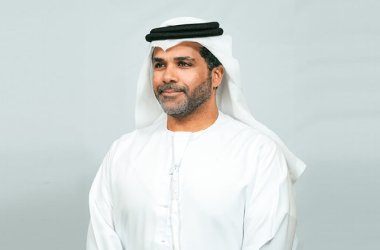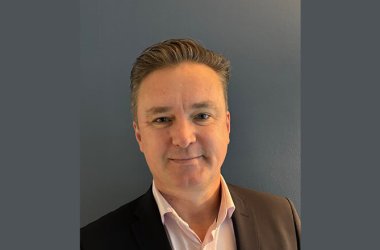The Dubai International Financial Centre (DIFC) Courts has today announced the launch of a new suite of digital public services, including the Digital Assets Will. Unveiled at GITEX Global 2024, live demonstrations showcased new service platforms, accessibility, functionality, and security protocol features. 
A new edition to the current group of Wills Service offerings by the DIFC Courts, the Digital Assets Will empowers individuals to distribute their digital assets using a non-custodial DIFC Courts wallet.
A non-custodial wallet also allows an individual the freedom to reallocate the assets to the desired beneficiaries within their wallet, and for full control to mobilise in and out of the wallet in their lifetime, with assets finally distributed as ‘specific gifts’.
Digital format assets recognised by the wallet include ETH; BTC; MATIC; USDC; USDT; and HBAR. Future enhancements to the system will include supported NFT standards ERC 721; ERC 115; Ordinals; and HTS (Hedera Token Service).
The new Will template joins the extensive legacy Will types offered by the DIFC Courts, including the Full Will, the Property Will, the Financial Assets Will, the Business Owners Will and the Guardianship Will. An existing online automated Will drafting service, and a Virtual Registry reinforce a 360 digitally accessible service, allowing those living domestically and overseas to create and register a DIFC Courts Will.
Investors and residents can access it from anywhere in the world and be connected, via video link, to a compliance officer sitting in Dubai.
Wills can also then be added to the global digital vault, tejouri. Launched in 2022, tejouri provides a unique platform that functions simultaneously as a cloud vault and an online safe for data, supported by a state-of-the-art onsite DIFC data centre and a secondary UAE-based backup data centre. Access to all data is restricted to the ‘vault holder’ and the listed intended recipients, guaranteeing zero knowledge proof privacy principles.
All uploaded life admin files are secured under the highest standards of security regulation, using multiple factors of authentication, encrypted data, personalised biometric information and safe-keeping ledgers through advanced cryptography. Using Distributed Ledger Technology (DLT), tejouri can ensure the transmission of your entire portfolio to your designated stakeholders, or loved ones, at a key time.
Also announced as part of the new upcoming digital services is the Notary Service, which will be the notarising English documents only and is the first-of-its-kind service in the UAE. The service will provide three (3) options for users; an automated self-service; a live virtual system; and an in-person service. Users of the service will also have the option to utilise an authentication service through primary source verification (PSV).
An electronic or physical stamp and seal will be issued with each document and notarised documents will be verified using advanced cryptographic methods, powered by Hedera Blockchain, by logging notarisation events with a timestamp on the blockchain.
Preservation and integrity of documents will be ensured using distributed ledger technology (DLT) by converting documents to NFTs, in compliance with ERC20 standards. User privacy will be maintained at all times through advanced encryption methods and privacy-preserving protocols, ensuring that sensitive information is fully protected throughout the entire process.
Document types accepted for attestation and notarisation will include, but is not limited to, affidavits, witness statements, Wills, power of attorney, trade licenses, title deeds, health certificates, marriage certificates, and bank statements.
As part of the mission of the DIFC Courts to provide an effective portfolio of dispute resolution mechanisms, a new alternative dispute resolution avenue will also be provided. The Mediation Service Centre will enable parties to negotiate resolution of their dispute with the help of DIFC Courts Part III registered mediators.
Parties will be able to choose the mediators and agree fees and terms in advance, as well as the choice to conduct mediation meetings online using the newly upgraded and AI-enabled Court Management System (CMS), or in-person at the DIFC Courts premises.
His Excellency Justice Omar Al Mheiri, Director, DIFC Courts, said: “In our new digitally driven societies, individuals and businesses are demonstrating increased desire for easily accessible public services. The strong growth momentum arising from the implementation of the Dubai Economic Agenda D33, and the Dubai Digital Strategy, has touched a diverse range of sectors, including government legal services. Our obligation is to deploy the latest emerging technologies to facilitate this growth and demand. Breaking down the boundaries of access to justice sits at the core of our operations and these new digital services provide ease of process across administrative tasks, such as notarisation, to more complex matters involving alternative dispute resolution and inheritance. The DIFC Courts, together with its public and private sector partners, is proud to spearhead some of the UAE’s most progressive government legal services, supported by smart technology implementations.”
The new suite of services were launched with the support of The Hashgraph Association, specialists in building Distributed Ledger Technology ecosystems, with Hedera technology utilised by the DIFC Courts to construct a bespoke DLT architecture and establish access to a decentralised trust application.
Kamal Youssefi, President, The Hashgraph Association, said: “We are proud to be part of this impactful journey and reaffirm our continued support to the DIFC Courts in launching both the Digital Assets Will, as well as the Notary Service, powered by Hedera DLT platform. This project underscores our commitment to strengthening decentralised infrastructures contributing to digital innovation across UAE. Through our partnerships and projects across the MENA region, with a focus on the GCC, we are committed to propelling the Web3 ecosystem and fostering the growth of Hedera network, with innovation programmes and strategic initiatives launched in Saudi Arabia, Qatar, Morocco and beyond. Working with trusted partners such as Deca4 Advisory and the DIFC Courts is a testament to the strength of public-private sector cooperation.”
Deca4 Advisory also supported the DIFC Courts with architecting the new digital services, as well as support from the DataFlow Group, who specialise in Primary Source Verification (PSV) solutions and background screening and provided a checkpoint for tamper-proof, verifiable credentials of documentation entering the DIFC Courts service systems.
Mohammed Mahfoudh, CEO, Deca4 Advisory, said: “The DIFC Courts is pioneering the integration of advanced technologies, setting a benchmark for government and semi-government entities in the UAE, the region, and globally. Our partnership with The Hashgraph Association and Hedera has been a key pillar in the success of this project, allowing us to build a deep architecture on Hedera and develop cutting-edge solutions. We are creating unique and practical use cases that will drive broader market adoption, especially with the Courts leading this transformative journey.”
Sunil Kumar, Chief Executive Officer, DataFlow Group, said: “At DataFlow, we are proud to collaborate with the DIFC Courts to introduce a new era of digital public services aligned with the UAE’s vision for digital transformation. By integrating our advanced AI-driven solution for document tampering detection and image forensics, we enhance the security and efficiency of these services, enabling fraud detection within seconds. This partnership strengthens our long-standing relationships with government authorities and represents a crucial step toward combating document fraud, reducing processing times, and increasing confidence in decision-making. As a leading verification and digital services organisation, we remain committed to delivering innovative solutions that promote trust, transparency, and convenience in public services.”
The DIFC Courts is currently operating on a new roadmap for the years 2022 – 2024, which includes a strategic work plan that brings more national cohesion to the Courts’ projects and initiatives in line with the ‘D33’ economic agenda and the Dubai Digital Strategy. This in turn is providing effective support for both the federal and local Dubai strategic goals.
Established in 2004, the DIFC Courts is Dubai’s international English language common law judicial system and forms a key part of the legal system of the United Arab Emirates (UAE). It was established with the specific objective to enable the international community in the UAE to have greater confidence in the Emirate’s legal framework and to further strengthen investment and trade relations with Dubai and the UAE.





